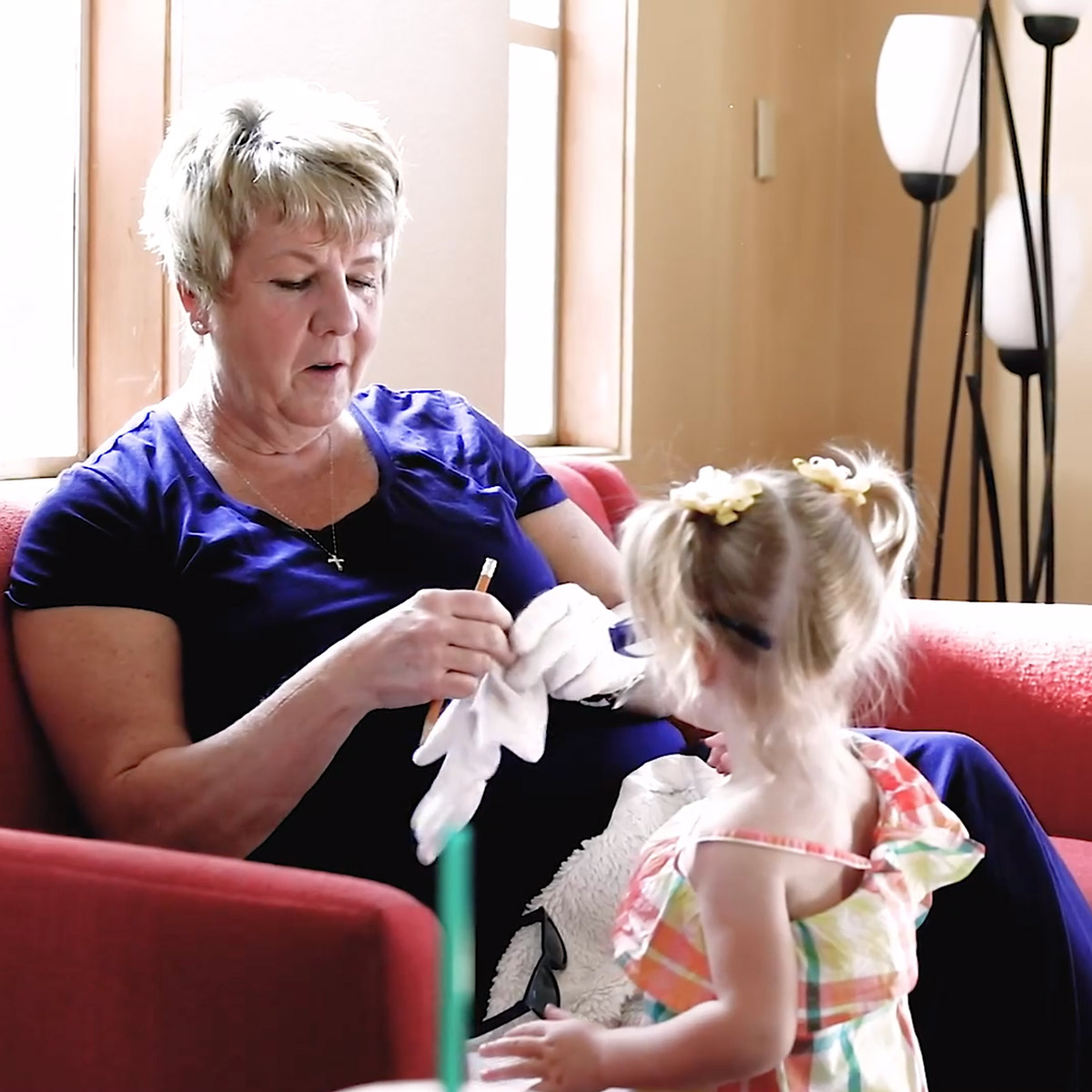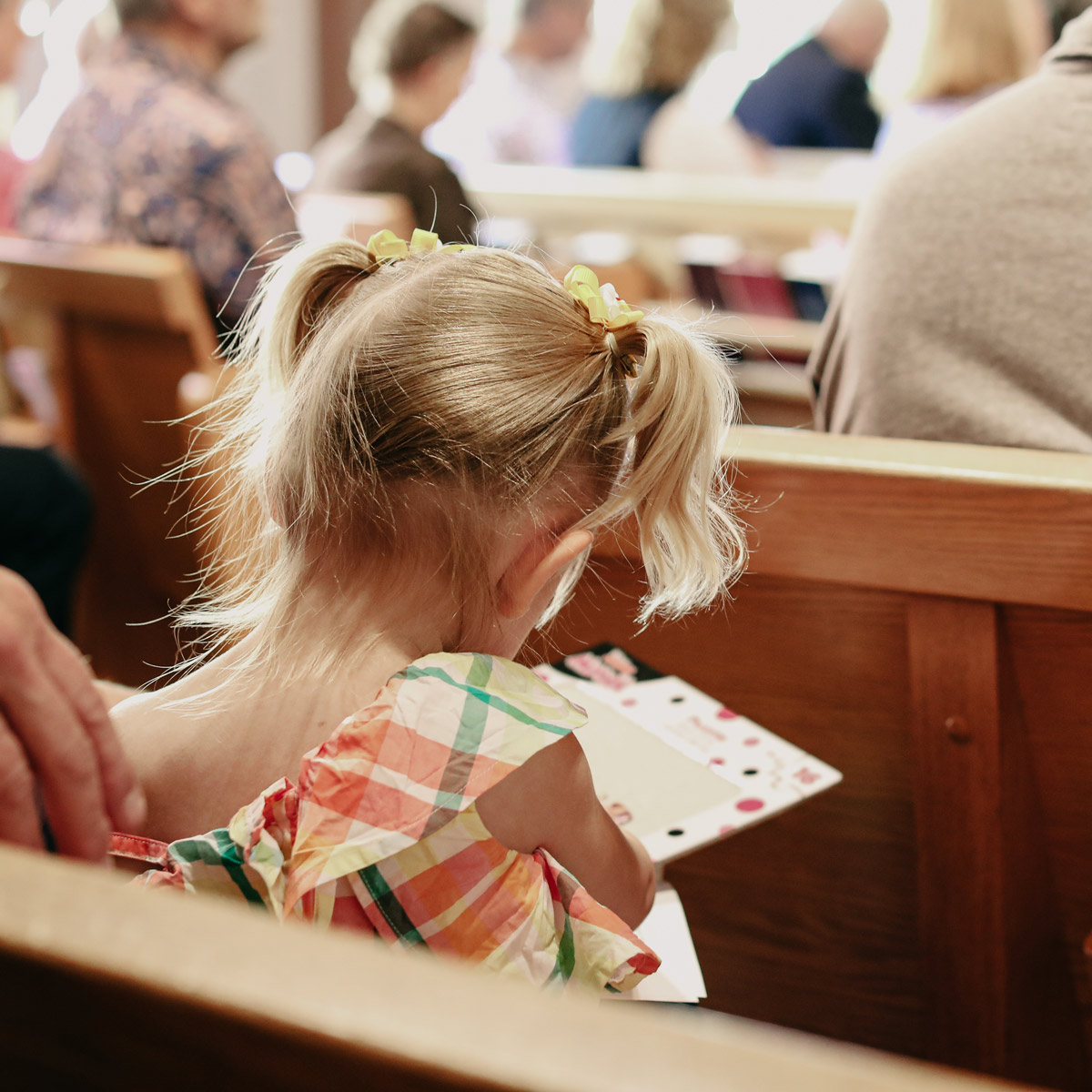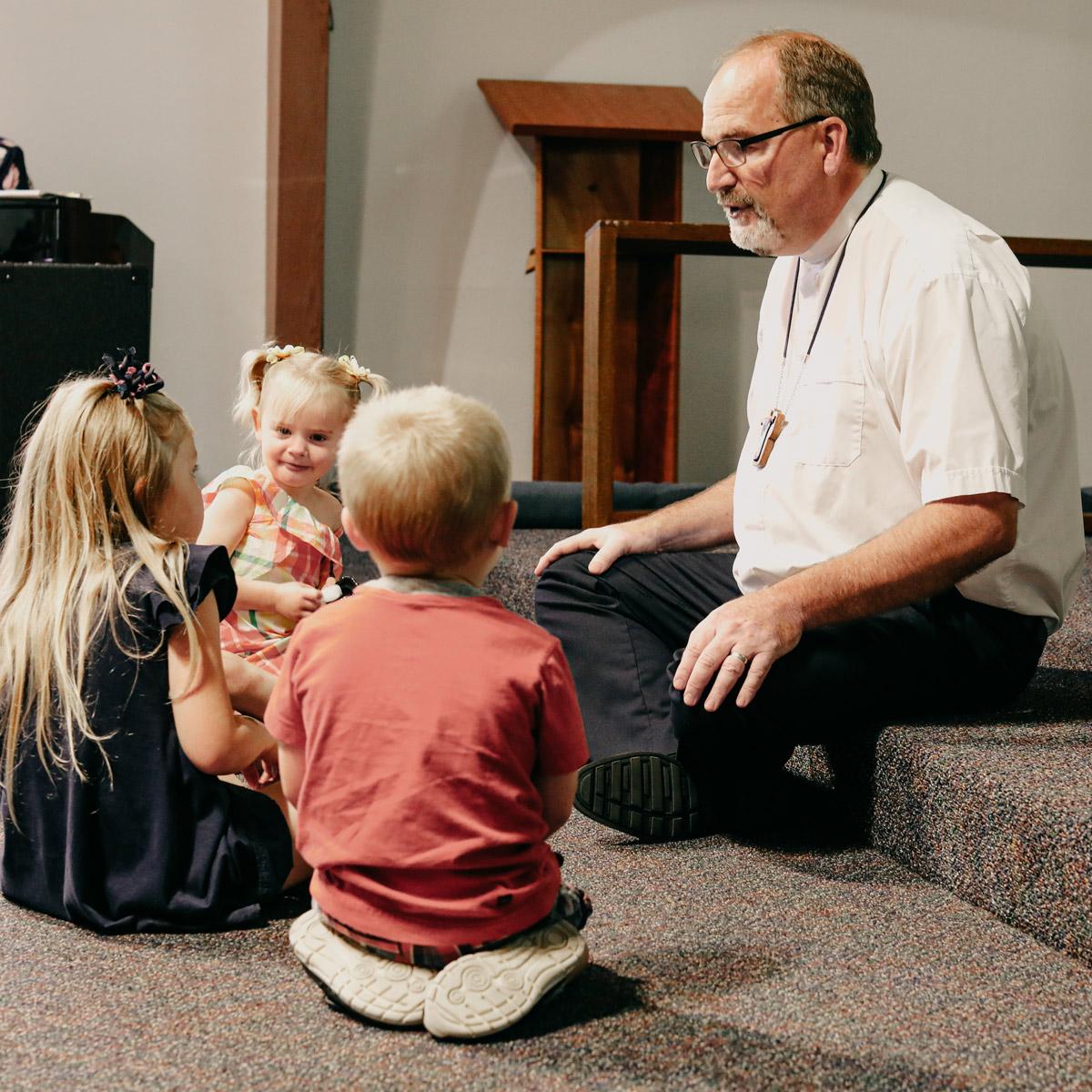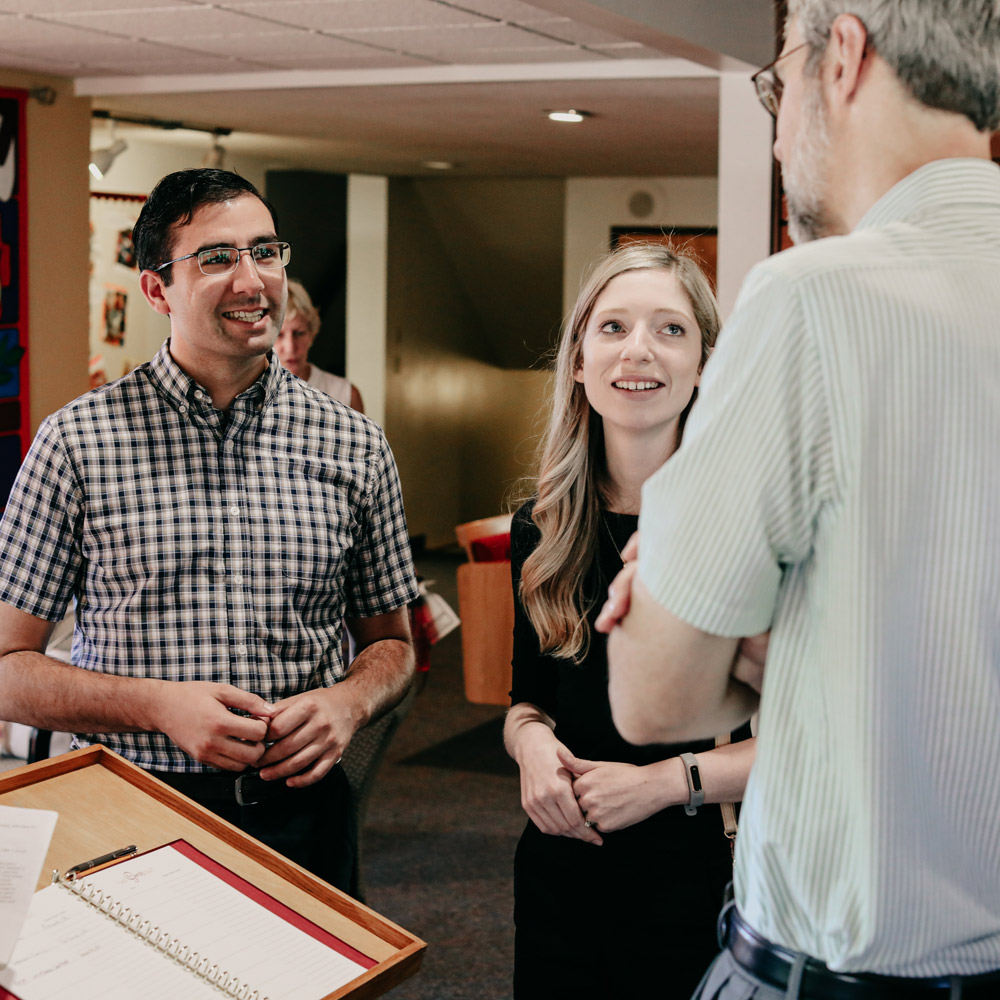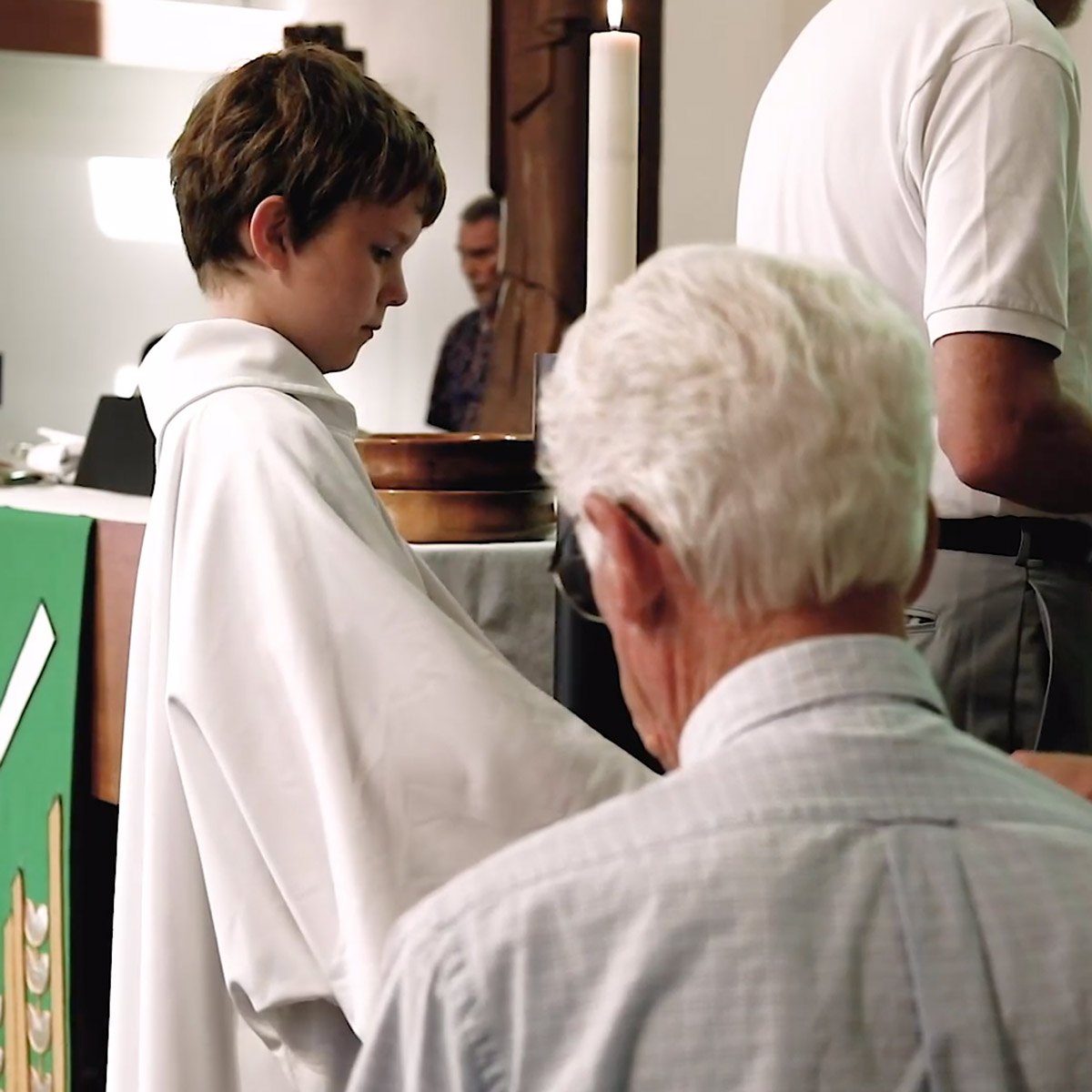
February 14, 2021 | Self-less Love
Self-less Love
Pastor Dan Haugen
Grace, mercy and peace to you from God our Father and from our Lord Jesus Christ who, together, are three in one.
In the ancient Greek language, there are 6 words for love. The first kind of love was eros, named after the Greek god of fertility, and it represented the idea of passion and desire. The second variety of love was philia or friendship. Philia concerned the deep friendship that developed between brothers in arms who had fought side by side on the battlefield. Philidelphia gets its name which means “The city of brotherly love” from this.
While philia could be a matter of great seriousness, there was a third type of love valued by the ancient Greeks, which was playful love. Following the Roman poet Ovid, scholars (such as the philosopher A. C. Grayling) commonly use the Latin word ludus to describe this form of love, which concerns the playful affection between children.
The use of the ancient Greek root pragma as a form of love was popularized by the Canadian sociologist John Allen Lee in the 1970s, who described it as a mature, realistic love that is commonly found amongst long-established couples. Pragma is about making compromises to help the relationship work over time, and showing patience and tolerance. Here that Washington DC?
The Greek’s fifth variety of love was philautia or self-love. And clever Greeks such as Aristotle realized there were two types.
One was an unhealthy variety associated with narcissism, where you became self-obsessed and focused on personal fame and fortune. A healthier version enhanced your wider capacity to love. The idea was that if you like yourself and feel secure in yourself, you will have plenty of love to give others or, as Aristotle put it, “All friendly feelings for others are an extension of a man’s feelings for himself.”
Finally there is the love called Agape. Agape love is perhaps the most radical because it’s a selfless love. This is a love that you extend to all people, whether family members or distant strangers. Agape was later translated into Latin as caritas, which is the origin of our word “charity.” C.S. Lewis referred to it as “gift love,” the highest form of Christian love. This is a godly kind of love and what we find ourselves very short of sometimes in our society. This is the kind of love we find Paul speaking about in our New Testament lesson for this morning and it’s what I’ll be focusing on.
Over and over again, Paul uses the word Agape in this section of 1 Corinthians because it was a kind of love the Corinthian church was lacking. This was a new church struggling to make its mark. They found themselves surrounded by many different false God’s because Corinth was a city made up of people from all parts of the world, a melting pot of nationalities who all brought their gods with them.
As you might imagine, this put lots of pressure on this fledgling church and with pressure sometimes love becomes fleeting. Paul here is guiding them to the point of unification based on the principles of God.
Just before this section of Scripture Paul is reminding them of the importance each person plays in the body of a church family. Paul says in chapter 12 starting with verse 12:
“For just as the body is one and has many members, and all the members of the body, though many, are one body, so it is with Christ. For in one Spirit we are all baptized into one body – Jews or Greeks, slaves or free – and all were made to drink of the one Spirit.”
Paul goes on to explain that each person, though one body in Christ, has their own gifts to add to the strength of that one body. Each person, whether they are apostles, prophets, teachers, healers, helpers or administrators work together, using their own unique gifts to strengthen this one body.
Our section in chapter 13 then binds them all together into one calling, the calling to love your neighbor with the same kind of selfless love that God loves us with, the same kind of love that thinks of others before ourselves, the kind of love that makes the one body, together, effective. The love that God so effectively expressed to us when He was willing to have His only Son pay the penalty we deserved through His death.
Today, we celebrated St. Valentines Day. St Valentine of Rome was a priest and bishop in the Roman Empire who administered to Christians who were being persecuted there. Despite the possibility that his ministry would eventually aid in condemning himself to death, he continued to express this kind of Agape love to his brothers and sisters in Christ despite the dangers. He was eventually martyred on February 14th in the year 269 because he refused to deny His God or to stop loving others as God loves them. St. Valentine knew that this kind of selfless love was a love most needed and one he was called to give no matter the cost. To him, it was worth the risk.
When we talk of love today, I wonder how many people really think about what they are saying. It’s so easy to drop the word love around as if it means very little. A couple of years ago, my wife and I bought a new car and what is the first thing I said after driving it? “I love this car!” I tell others about being a pastor here at Prince of Peace and I say, “I love that God has placed me here.” I buy this certain kind of cheese and crackers and I express my “love” for them, obviously a little too much love by the looks of me.
But, what is love really? What do we mean when we say we love our spouse or our children or our grandchildren or even our closest friends. What do we mean when we say we love the Lord?
Is it a self-less kind of agape love, or is it more a warm fuzzy kind of love because of what it does for us?
Paul tells those in Corinth, that if they don’t possess this kind of selfless love to others their pretty useless. He says that we might be able to use our gifts in the greatest of ways but if we don’t have this kind of self-less godly Agape love, we gain nothing……in fact, we are nothing.
He goes on to describe this kind of love as patient and kind, a love that doesn’t envy or boast. It is not arrogant or rude. It does not insist on its own way; it is not irritable or resentful, It does not rejoice in wrong but rejoices with the truth. Paul says this kind of love bears all things, believes all things, hopes all things and endures all things. And greatest of all, this kind of love never ends because this is a Godly love expressed each day from a God who is love.
Whereas our love for another might end here on earth, God’s love for us, this agape love, will never diminish. No matter our past mistakes, no matter our present condition, our God still loves us as he has always loved us, with a self-less love that is willing to go to any length so that we might be saved from a world that, too-often, only has love for itself.
We look at the world today and I think we would all agree that a little more Agape love is what is needed. Imagine if Democrats and Republicans loved each other this way. Fox and CNN would be out of business.
Imagine if everyone loved this way. Would there still be those without enough food? Would there still be people without a roof over their head? Would there be war, or crime, or racism? Imagine if we all loved each other with the same kind of love that God has for us. If you want to aspire to something, aspire to that and change the world in your own little way.
It’s no wonder that almost every Christian wedding ceremony includes the words in our text. It’s because it is God’s calling to us as to how we are to love each other. It’s not meant for just those people who marry each other, it’s a kind of love we should extend to every person, even those we don’t know.
It doesn’t call us to forget the hurts, He calls us to learn from them. He calls us to get past those hurts and trials so that we might accomplish greater things. Anger only divides. Resentment only divides. Jealousy only divides. Agape love was created to unify all people into the likeness of their Creator. It was created to bring us together into one body so that we might work together to make our world a better place. I think that sounds pretty awesome!
If you really think about it, this kind of love is probably the greatest thing we could ever express. Paul says in verse 13, “So now faith, hope and love abide, these three; but the greatest of these is love.”
Why would Paul say that? It’s because, without love there can be no faith or hope. Faith in God, by definition, is powered by love. How can you place your complete faith into someone you don’t love? Who can trust and abide if all you feel is hate or indifference? What good is faith if the one you are faithful to doesn’t have your love and respect. Love is the engine of our faith in God.
And what hope could one have without love in their heart. Can we hope for something we hate? Can we look forward to something we know nothing about? Can we place our confidence in something we don’t care for? Hope, like faith is powered by love and love is what we should have to find the strength to live this life as God calls us to live it.
Paul knew that if this little church in Corinth was to succeed, it would have to find its strength in love. We are no different. If we are to ever reach the summit of what this church, this city, this state could be, it will have to be powered by love, not hate. We don’t have to agree on everything, but we are all called to love each other despite our differences.
That is our challenge and that is our calling. If we are ever to succeed as God’s children on this earth, then we must put our hatred, our animosity, or jealousy and resentment behind us and learn to love with the kind of love that God showers upon us, a selfless kind of love that thinks of our neighbors first, an Agape love that knows no bounds. Amen.




